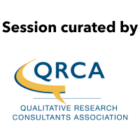Contextual intelligence: Guiding business success by reframing business challenges and perceptions of people
Room 1 | 10:15 am - 10:45 am | Thursday, February 23, 2023
Before Copernicus proved that the earth revolved around the sun, all astronomers used the wrong baseline assumption that the sun revolved around the earth so every observation and all their analysis was filtered through the wrong baseline assumption of what revolved around what. It really didn’t matter how much data they collected, or how well they analyzed/rationalized, their observation were wrong. So when is the last time you really did a baseline assumption check-in on your research initiatives and how do you even do that? This presentation will share the contextual intelligence lens to do a check-in. Susan will share the tools she has developed so that you can begin to integrate counterintuitive thinking, cognitive demographics, as well as why you should rethink how you use behavioral economics and empathy.
Speakers:
More sessions
Finding the ‘so what?’ behind your research
Like many industries, banking has faced many challenges in recent years, from increasing competition to shifting customer expectations – challenges that require market research to stay ahead of. However, First [...]
BTS: Journey to the Metaverse
Get a behind-the-scenes look at a year-long body of work involving the metaverse at Warner Bros. Discovery and lessons learned along the journey. We’ll spotlight learnings from pitch to presentation [...]
Co-creating brand magic with HOKA: Tips and tricks for successful stakeholder/consumer co-creation
Well-designed market research can identify actionable insights and innovation areas. But what’s next? Creative thinking can sometimes hit us out of the blue, but it doesn’t have to be an [...]














